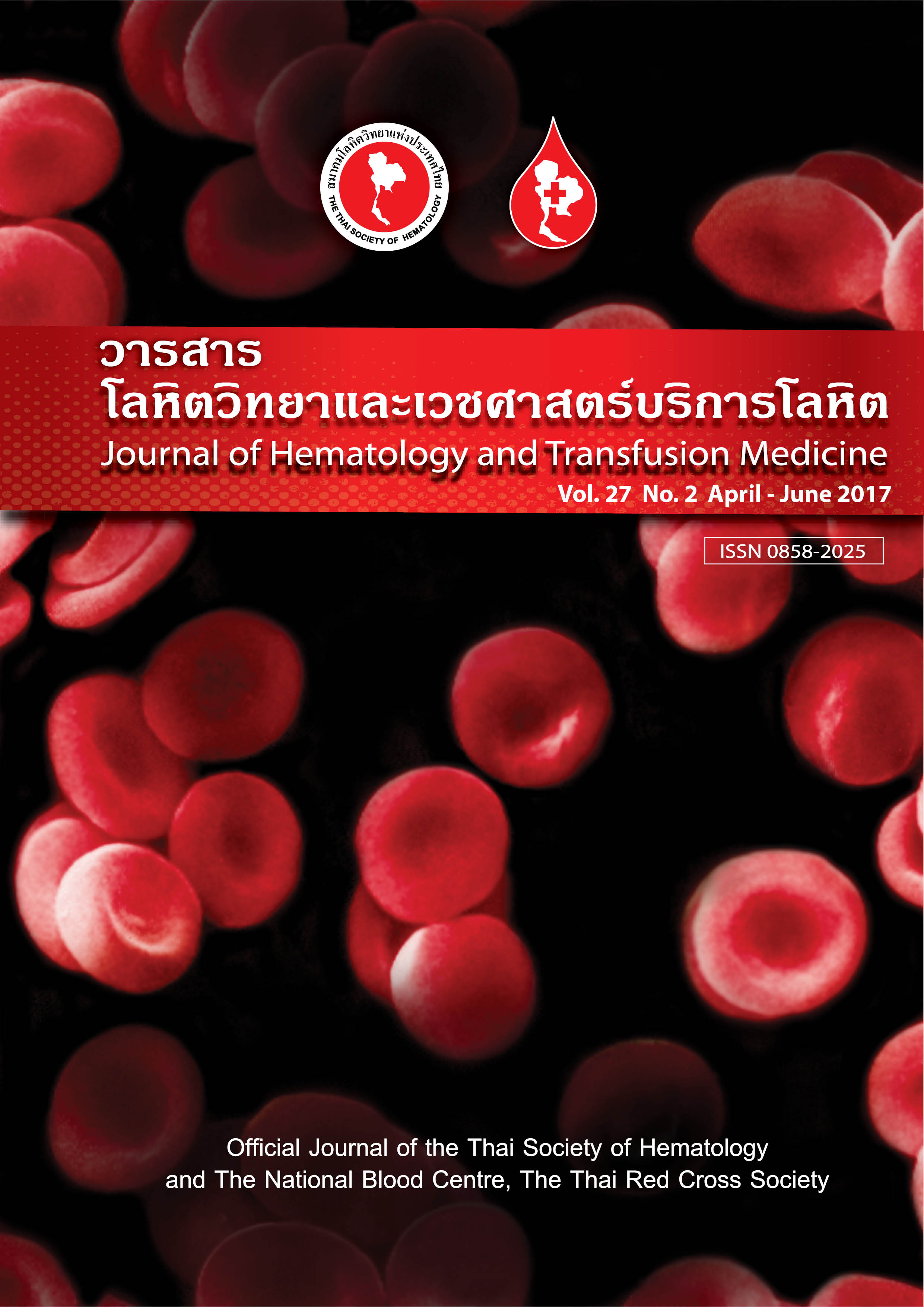Effects of low dose hydroxyurea treatment on patients’ quality of life in B-thalassemia/hemoglobin E disease
Abstract
In clinical trials, treatment with hydroxyurea (HU) at a dosage of 20 mg/kg/day for 20 weeks has been shown to increase the production of fetal hemoglobin (Hb F) in patients withDownloads
Download data is not yet available.
Downloads
Published
2017-06-19
Issue
Section
นิพนธ์ต้นฉบับ (Original article)



